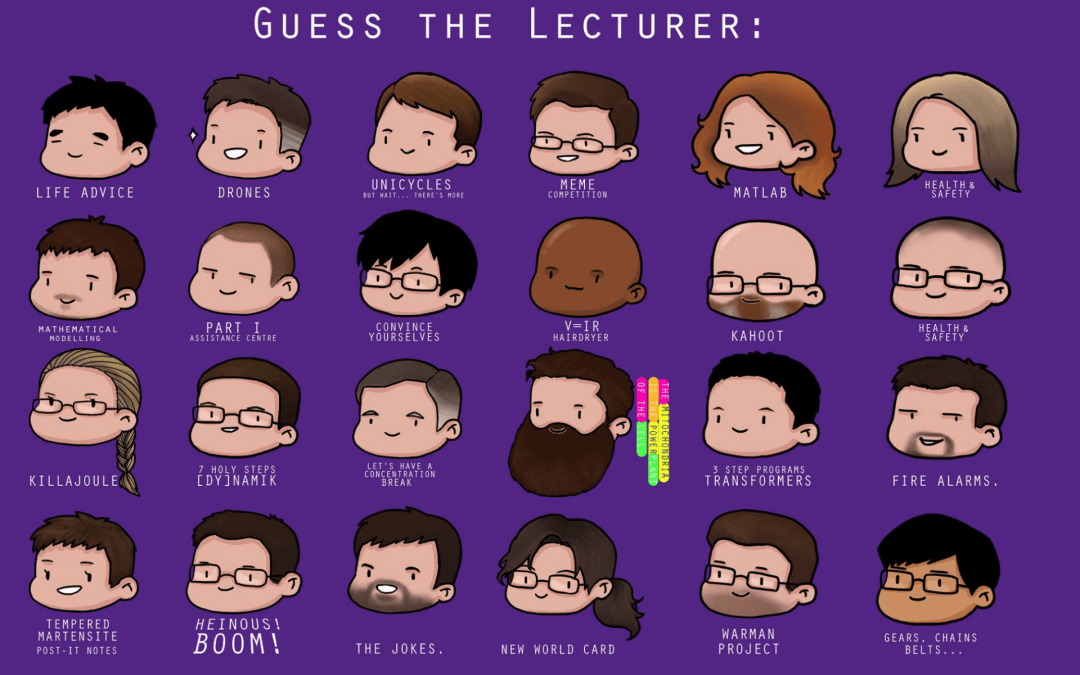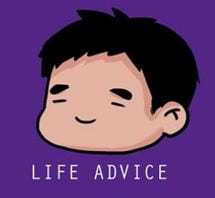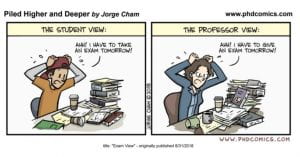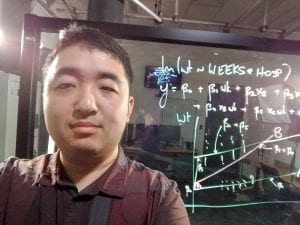Tired of hearing me talk about myself (*unanimous nods*)? Want some opinions and advice from an actual lecturer (*nodding intensifies *)? Wonder what life was like back when they were university students (*a shout erupts from the back “Get on with it!”*)?
Alright, alright, while we haven’t included any crazy party anecdotes (maybe if you ask him nicely? 😉), known for his life advice, ability to turn dry content into something enjoyable, and engagement with his students, I present to you:
Kevin Jia!
A name known to pretty much all Engineering students (budding Engineers you’re in for a treat), Kevin is from the Department of Engineering Science currently teaching second and third year Engineering Science, as well as second year Engineering courses.
Let’s start the interview!
Disclaimer by Kevin: Note that the following statements are my personal opinions and does not necessarily reflect the view of the University.
Breaking the ice
Pineapple on pizza?
Sure, why not? I’ll have it either way.
Tell me about yourself
What did you study (and why)?
I studied a conjoint Bachelor of Engineering (Honours) and Bachelor of Arts, in Engineering Science, Economics and Statistics. At the end of high school, I was weighing up Engineering vs. Law, but chose Engineering because I liked the idea of making sense of the world via numbers and optimising systems, and reading as a job instead of a hobby didn’t appeal as much.
My audience loves to hear about conjoints. 😉
Why did you do a conjoint? Did you find it beneficial?
I did a conjoint because I wanted some Economics in my degree; I was inspired by books like Freakonomics and The Undercover Economist – it always amazed me how thinking about incentives explained so much of the world. I enjoyed my Economics papers, especially the ones that dealt with policy, and in fact I did an internship as a research economist because of my conjoint degree.
Why masters?
By the end of my conjoint, I wanted to go a bit deeper in Statistics, so I did my masters by coursework in Stats. There’s a lot of theory and applications out there that slowly got unravelled as one progressed through Uni, and I wanted a bit more!
Best part about lecturing?
The best part is standing at the lectern and making a complicated idea make sense to anywhere from 60 to 570 students! It is very satisfying to see my students understand and use some of the ideas I teach out in industry.
A newfound appreciation.
Worst part about lecturing?
Writing exams – it is surprisingly difficult to write a good exam that is fair yet challenging, and also error-free. The deadlines are also at a particularly busy time of semester too.
A short interlude…
Interesting facts?
I played the saxophone once upon a time? Does that count?
What keeps you going?
My students. I’ve met so many truly inspirational people in my classes, and I am privileged to contribute in a small way to their success, whether it be in industry or further study. It is always great to hear about the achievements of my current and former students.
If you weren’t lecturing, what would you be doing?
Probably a job involving a lot of numbers, Excel spreadsheets, coding and report writing.
Hit me with some throwbacks!
What do you miss the most about uni?
Mostly the freedom with respect to time. As long as we went to class (no lecture recordings back then!) and submitted assignments, we had lots of time to do the things that we wanted, e.g. socialising, sports, etc.
That could be too much of a good thing though – with freedom comes responsibility.
Regrets?
I could have partied more? I was a bit overly focused on academics when I came through; it would have been good to have slowed down a little and enjoyed myself more.
Go to uni outfit?
Jeans, t-shirt, hoodie. Still rock that these days on days when I don’t lecture.
Where did you go for food during uni?
Munchy Mart / Forte Convenience were both around and are institutions. Also, the $5 kebabs on Queen Street were an efficient choice, as are Subs of the Day. Pita Pit and St Pierres Sushi came later…
How has uni culture changed?
Surprisingly, not much that I could see – but perhaps I’m getting a bit old!
There’s probably more of a presence of clubs on campus that wasn’t as strong when I was a student – and having common interests is a great way of meeting new people.
One more random question.
If you could have any superpower, what would it be?
Instant teleportation would be nice. Makes exploring the world easier and beats Auckland traffic on those bad days!
Ok, now let us know how to live our best lives!
Things you wish you knew while at uni:
Being a well-rounded person is important, and uni may be your last chance to participate in some extra-curriculars regularly! I was a bit overly focused on academics, and that limited the amount of time I had to do other things. (I did 5 papers each semester for 4 years, which was 1 more than required – yes, I was crazy back then!)
Top tips for current students:
- Keeping up with course content is so important. It is almost never wise to leave all your readings / lecture recordings to the 48 hours before an assignment / test / exam. Going to class is a helpful way of keeping up, as it allocates time for each class into your day and is a chance to meet people. Recorded lectures are great as a supplement, however there is a tendency to delay watching these for later when ‘more important things’ happen – and very quickly you may be 2-3 weeks behind!
- Revise regularly and often. One of my best friends used to summarise onto an A4 sheet the big ideas covered each week in each class on Friday afternoons. This keeps the lecture content ‘fresh’ in your mind and becomes version 1 of your study notes when you start revising for a test or exam. This saves a lot of time and panic later in the semester.
- Get help (but do try helping yourself first). Lecturers generally want to see you succeed, so come and see us in office hours! That being said, you should help yourself first by checking to see that the question has not been answered elsewhere – e.g. in the Course Outline, on a class discussion forum etc. Doing this might mean you get an answer faster. In a more mathematical subject (e.g. Engineering and Science), always spend some time doing the problems and writing down your thoughts if you get stuck. This allows us (and your peers, if you have a class forum) to help you more efficiently.
- Uni is unlike school in that there often isn’t a ‘formula’ for doing problems. We want to test your conceptual understanding and how you can relate the big ideas and concepts in a course together, and then apply them, so this means you do have to spend time to understand the material that is presented in lectures. Revising only with past exams is probably not going to be enough. That being said, not doing any past exams at all is also not a good idea either – so you need to find the right balance, which will depend on what course you are doing.
Top tips for prospective students
- Keep your options open at school! There are many good career options out there, so if you are unsure about what you want to do, keep up with maths, sciences and language-rich subjects. This also makes you better-rounded in your skills – e.g. it always surprises Engineering students when they realise how much writing they have to do in their jobs!
- Do your research. Find out about the options you are thinking of pursuing, and where they lead. If you have a career in mind, find out about how you might get there by asking people you know (via friends or family, perhaps) or online. Come to the Uni Open Day and talk to us.
- Often your choice of tertiary study is made out to be an all-or-nothing decision. It’s not! Remember that you can switch paths if things don’t work out, and you are not even restricted to working in the field that you studied. From my own Engineering classmates, there are of course engineers of all types, but also music producers, managers at start-ups, mountaineers, …
Aaaand, that’s a wrap!
Again, MASSIVE thank you to Kevin for doing this piece! I was shocked to find out he read the piece I did about Engineering Camp, and it just goes to show his level of student engagement. I think I’m speaking on behalf of Engineering students – or Engineering Science ones at least (… is that… the distant screams of fanboys I hear?) when I say we really appreciate your teaching and support both in and outside of the lecture theatre.
As for you readers, hope you enjoyed!
Until next time x
Cecilia






